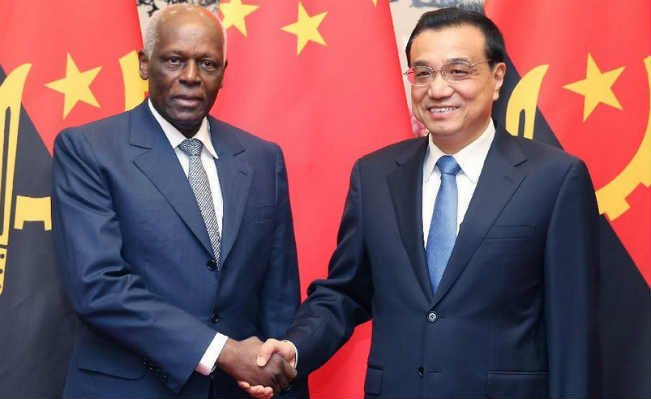
An unfinished post-conflict transition in Angola and the pursuit of oil wealth by a powerful elite has meant a crackdown on resistance
Rafael Marques de Morais was tried and given a six-month suspended jail sentence in May this year for defaming Angolan army generals. A renowned journalist in Angola, de Morais founded the anti-corruption website Maka Angola in 2008. He also wrote the book Blood Diamonds: Corruption and Torture in Angola in 2011. The book revealed killings and torture in the country’s diamond mines. His main crime was his work in investigative journalism.
Apart from writing being a crime, reading has also become a crime in Angola. Students and youth in the country have been involved in book clubs to broaden their horizons. In June, this year, 15 young people were arrested and are still in detention for being involved in a book club where they were reading From Dictatorship to Democracy: A Conceptual Framework for Liberation by Gene Sharpe. De Morais states in Maka Angola that “the book’s blurb describes it as ‘a blueprint for nonviolent resistance to repressive regimes'”. The youth are accused of treason and a plot to overthrow the government of Angola.
Heavily armed police handcuffed and took two of the youth – well-known rapper and activist Luaty Beirao and 19-year-old activist Nito Alves – to their homes without search warrants and searched them, seizing items without recording them. In Beirao’s case, his wife’s studio was raided and items seized without any police warrant. Bierao, who is a former student of Plymouth University in the UK, is on hunger strike. Also arrested was a freelance journalist, Sedrick de Carvalho, who was at the meeting, and taken handcuffed to his home where, after searches, items belonging to him and his wife were seized.
After these detentions, the authorities went to arrest the university lecturer and former journalist, Domingos da Cruz, who is a regular speaker at workshops on Saturdays based on the manuscript of his forthcoming book Ferramentas para Detonar a Ditadura (Tools to Detonate the Dictatorship).
Angola has been ruled since its independence in 1975 by the former liberation movement, People’s Movement for the Liberation of Angola (MPLA). The country was engulfed in a civil war immediately after independence until 2002. A ceasefire was signed between the two main fighting forces, the MPLA and the National Union for the Total Independence of Angola (UNITA) in 2002; the opposing side (UNITA), dissolved its military wing in August 2002. The country is ruled by the government of Jose Eduardo dos Santos, who has been President since 1979.
The government and the people are passing through a difficult process of transforming from a war situation to normal civil order and this has led to tensions. Writers – authors and journalist – as well as students and youth have become victims in this transition.
De Morais wrote on his website Maka Angola and that of the Open Society Initiative for Southern Africa:
“The timing of this operation has to do with the current economic crisis, which is deepening, and threatening the stability of the regime. In a recent internal report leaked to the Portuguese weekly Expresso, the National Oil Company Sonangol admits facing technical bankruptcy. Sonangol is the lifeblood of the president and his cronies, as it manages Angola’s oil output of up to 1.9 million barrels of oil a day, making it the second largest oil producer in Africa. Dos Santos’s recent visits to China, allegedly to request a debt moratorium, have sparked an outcry in Angola about rumours that he has been giving away vast tracts of the Angolan land in exchange for new loans”.
In a post-conference discussion with participants at the third annual international conference organised by Kilombo Centre for Civil Society and African Self-Determination, a delegate to the conference from Angola, Filomeno Lopes, drew the attention of participants to what has been happening in Angola and advised those from Britain to link up with the Angola community there for solidarity events. On 17 October, the Angolan community organised a vigil for the arrested and detained in Trafalgar Square in London, which was supported by Kilombo UK, an outpost of the centre.
Please sign online and share the petition, which has been initiated by the campaign group Kilombo UK.

